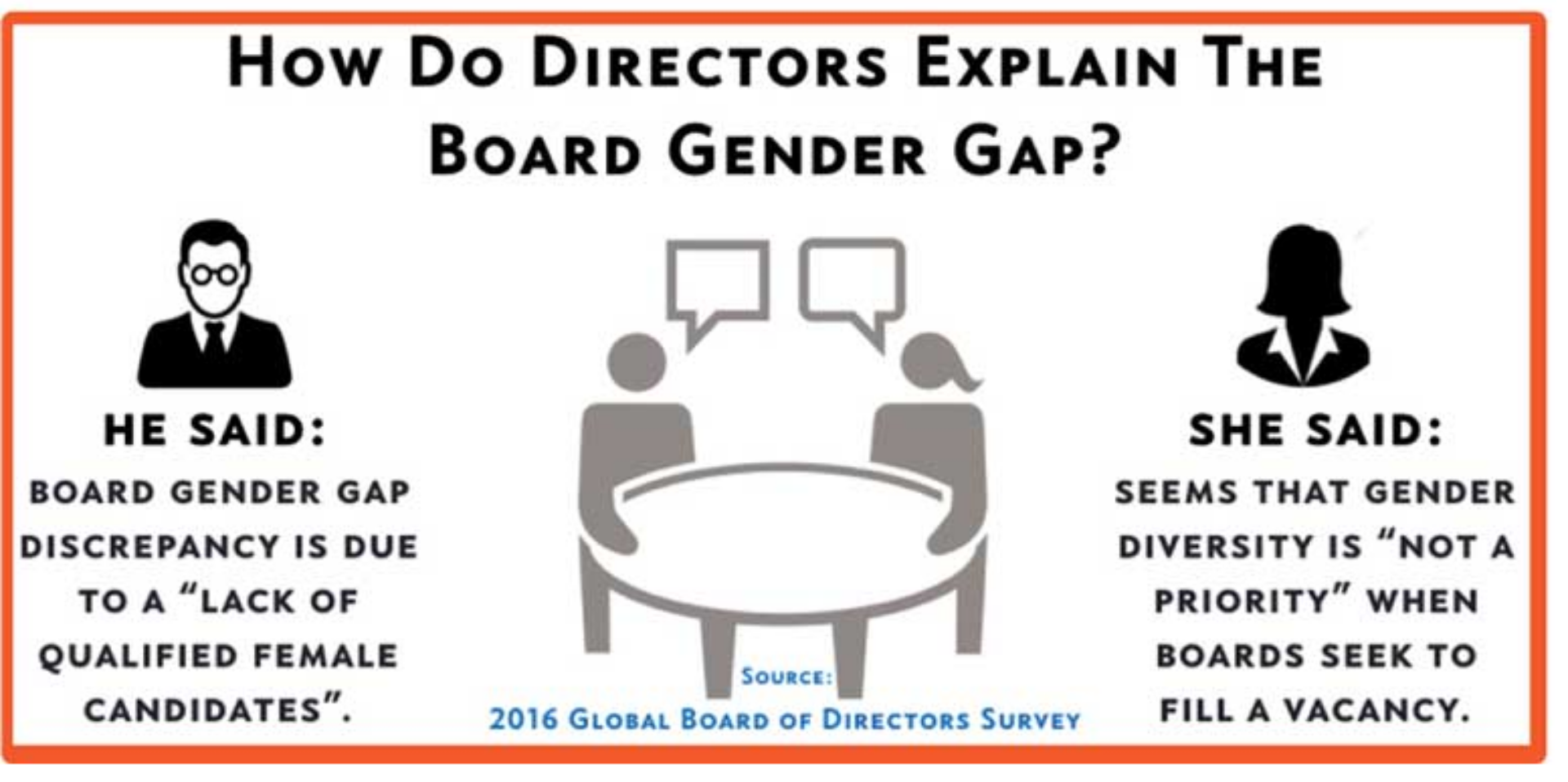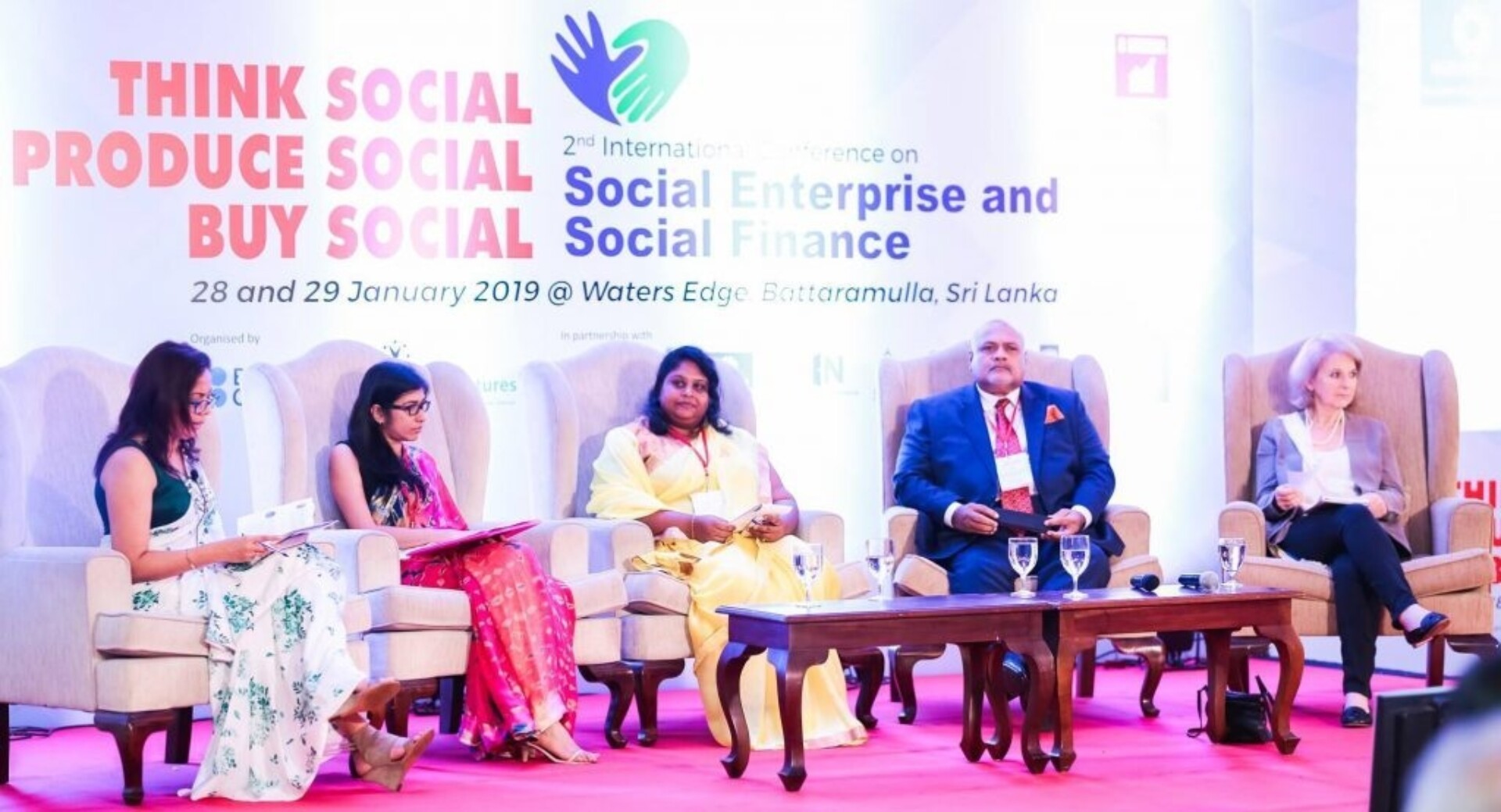
Testimonial
Are We There Yet? The Journey to Gender Equality in Business
Gender equality is challenging to unpack, especially in an international context. There are days where I am filled with optimism, while others leave me rather upset with the treatment of my sisters around the world. Since moving to Sri Lanka, I am constantly confronted with the realization that the fight for gender equality is not over, and requires us to continuously question if we truly believe we have done all we can. I have been challenged many times with the notion that good work is being done, so I should be happy with the progress.

Photo by Lanka Social Ventures [viii]- Representing the Lanka Impact Investing Network and promoting LIIN’s Emerging Women’s Summit for Female Social entrepreneurs and Impact Investors
We have all seen this, where a company boasts “over 50% of our employees are women”[i]. This is great, but there is a deeper question to ask, such as what percentage of leadership roles are held by women or what do you as a company do to actively encourage female voices in daily operations [ii].
Equality is much more than a few measurements and statistics. It is a process of transformation and a series of ever-evolving actions that takes time and moves an organization towards a more equitable workspace.
So this is where I begin. There is undoubtedly good work taking place, but I wanted to take the time to explore the current business landscape in Sri Lanka which invites, actively includes and empowers women.
“There aren’t any qualified women”
This is overwhelmingly the largest comment I hear about including women and this misconception starts with hiring new employees at the lowest levels of businesses [iii]. While this happens around the world, specific Sri Lankan stereotypes perpetuate the cycle of hiring men over women [iv].
One particularly damaging bias I have observed is the normalcy to ask marital status in job interviews [v]. I have witnessed first-hand, a recruiter ask if the interviewee was married. When she responded yes, the interviewer then proceeded to ask if she had any children. This was followed by the statement ‘we are looking for an employee who will stay with us for a long time’. Without directly saying it, we all felt he was implying that if this woman was going to have kids, she was not fit for the position.
When men are hired over women at the bottom levels of a company, there is no chance for the development of skills and professional experience, which leads future recruiters further passing over women for promotion into leadership roles [vi]. This is very apparent in Sri Lanka as even some of the most progressive companies continue to have all-male boards, with only 8% of board seats being held by women [iii].

Photo from Daily Financial Times [iii]- Difference in how men and women view the Board Gender Gap
“At least there are women here”
I am thankful to be surrounded by intelligent female leaders in my organization but am continuously surprised at the lack of attention given to these women. While coordinating a panel, all the women had been placed in the outside seats, which to me looked as if the women were literally being pushed to the side. When I suggested that the women be given the center seats, because where women are seated sends a powerful message [vii], the response I received was “at least there are women on the panel at all.”
This was not an isolated incident, but a recurring theme of inviting women to be in attendance but not treating them in the same regard as their male counterparts [iii]. Gender equality is much more than just inviting women to watch, but requires all voices to be engaged in the conversation.
Passing women the microphone
Gender representation is growing, and as many times as I am discouraged by its progress, I am presented with amazing women rising in their field. This was no more clearly demonstrated than at the 2019 Conference on Social Enterprise and Social Finance [viii]. I had the opportunity to attend and was blown away by the female delegates, and the intentionality by the organizers to have an equal representation of men to women speaking at the conference.

Photo by Lanka Social Ventures [viii]- Panel on women in Social Entrepreneurship at the 2019 Conference on Social Enterprise and Social Finance
Throughout the two day event, women had opportunity to share their expertise, and were asked insightful questions that went beyond simply asking why women aren’t more involved in the industry [ii] (as my colleague put it “every conference says the same things. We all know the reasons why women are not in business, but can we actually do something about it”). This conference was a true example of equal representation and these intelligent, driven, successful women set a standard for the future of entrepreneurship in Sri Lanka.
These three examples paint a dramatically different picture of gender inclusion. One depicts women as unqualified to move above their current standing, one in which women are invited but not actively involved and finally an image of women engaged and driving conversations of change. It is easy to be content with the steps that have been made, while at the same time, blind rage at the failings of society can be just as unproductive. As women, men, directors, CEOs, interns, and students, it is essential that we are aware when we have become complacent and stagnant and that we think critically about our goals of gender equality.
i. Marsh, S. (2018, April 01). BBC targets 50/50 split in male and female experts by next year. Retrieved from https://www.theguardian.com/media/2018/apr/02/bbc-targets-50-50-split-in-male-and-female-experts-by-next-year
ii. Huffington, A. (2018, September 21). 50/50 Parity for Women in a Broken System Isn't Enough. Retrieved from https://thriveglobal.com/stories/50-50-parity-for-women-in-a-broken-system-isn-t-enough/
iii. Wake up boys; let's walk the talk. (2017, November 08). Retrieved from http://www.ft.lk/columns/Wake-up-boys--let-s-walk-the-talk/4-642952
iv. The World Bank. (2017, November 15). Unlocking Women's Potential in Sri Lanka's Labor Force. Retrieved from https://www.worldbank.org/en/news/feature/2017/11/15/unlocking-womens-potential-sri-lankas-labour-face
v. Hutchings, K., Samaratunge, R., Lu, Y., & Gamage, A. S. (2016). Examining Sri Lankan professional women’s perceptions of their opportunities to undertake international careers: Implications for diversity among cross-cultural managers. International Journal of Cross Cultural Management, 16(1), 77-98. doi:10.1177/1470595815611696
vi. International Labour Organization. (2018, March 08). Women at Work: The Course for Sri Lanka. Retrieved from https://www.ilo.org/colombo/info/pub/pr/WCMS_558635/lang--en/index.htm
vii. York, D. (2018, December 17). Where you sit at a meeting may say something about your role. Retrieved from https://qz.com/work/1496160/where-you-sit-at-a-meeting-may-say-something-about-your-role/
viii. Lanka Social Ventures. (n.d.). CONFERENCE 2019. Retrieved from http://lankasocialventures.com/conference2019.php
